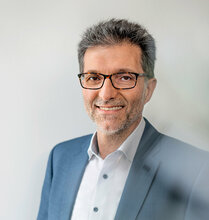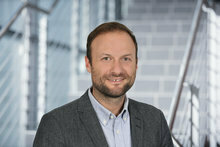“Our focus is on implementation, speed and performance: in the past nine months, we have already made important decisions for the setup of our company. With our stringent 10-Point-Program, we have clearly prioritized our operational and strategic areas of action. Core areas are our products, markets and customers, technologies and the financial framework of Volkswagen Group,“ Oliver Blume, CEO of Volkswagen Group, said at the Capital Markets Day at the Hockenheimring. "Our management approach is based on measurability, transparency, accountability and team spirit. The beneficiaries of this strategic realignment are our customers, our investors and our team: with attractive products, higher returns and entrepreneurship within the brands."
With the new steering model, Volkswagen Group gives the brands direct responsibility for financial targets, strategy and brand identities.
The brands' performance programs, managed on brand group level, provide the framework for their further development. Shifting the focus from volume to value creation will strengthen the brands' market positioning. To achieve this, the brands are focusing on improving their performance in terms of margins, product mix and vehicle features. In addition, new business models, such as mobility services, can expand the room for maneuver of the brands and tap additional profit pools. This is further supported by an efficient bundling of economies of scale as well as extensive cost-saving measures in the areas of development, materials, production, sales and fixed costs.
Oliver Blume, CEO of Volkswagen Group: "We are currently in exciting, yet challenging times. The automotive industry is transforming at an unprecedented pace, with e-mobility and digitalization in particular dominating the agenda of the future. We need to accelerate our own transformation even further to secure and enhance our competitiveness. Our new leadership team is poised to do this - with entrepreneurship and a clear commitment to sustainability and performance."
New "value over volume" approach boosts Group efficiency
In future, Volkswagen Group will prioritize sustainable value creation over volume growth. Arno Antlitz, CFO and COO of Volkswagen Group: “Our new steering model is based on the principles of profitability, lower fixed costs and disciplined investment. Historically, our company has often tried to increase profitability through volume growth – and we have been successful with this strategy. However, we are convinced that the transformation of our industry towards e-mobility and digitalization requires a new approach. That is why we have introduced a steering model based on strong brand groups and technological platforms across brands. It prioritizes sustainable, profitable value creation over volume growth." The aim of the steering model is to create a balanced combination of the emotional power of the brands and the economies of scale of the Group's technology and services.
The realignment also includes a more distinct designation of the brand groups, which will in future be called Core, Progressive, Sport Luxury and Trucks.1
To be well-prepared for the challenges and to take advantage of opportunities, the financial robustness of the Group will be strengthened. To this end, the Executive Board has defined specific KPIs that each brand group as well as the CARIAD and PowerCo technology platforms will be measured against for the first time. The focus is on operating result, return on sales, net cash flow, cash conversion rate (CCR) and investment ratio. To reinforce these priorities, Volkswagen Group plans to further develop the management incentive scheme to include selected financial targets for brand and brand group performance.
Starting from 2023, Volkswagen Group aims for annual sales growth of 5 to 7 percent on average until 2027. Thereafter, growth is planned to be aligned with industry developments. The strategic return on sales target will be raised to between 9 and 11 percent by 2030. For the respective financial targets of the brands, the company has comprehensively analyzed the returns of competitors and set them as a minimum benchmark.
Realignment of technology platforms
Volkswagen Group is realigning its technology platforms to provide an outstanding customer experience. The company relies on four technological areas: platform architectures, battery, software and mobility services. They are tasked with providing leading technological innovations and helping the brands to leverage scale benefits. It will allow the Group to strengthen the positioning of its brands and to sustainably increase profitability. In terms of architectures, there is a clear path for the establishment of the group-wide platform SSP. As early as 2024, the new PPE and the second generation MEB+ will be used as competitive architectures.
The battery strategy and ramp-up of PowerCo provide the Group with highest-possible flexibility and competitiveness through the Unified Cell – a unit cell staggered according to performance segments. The geometric standardization achieves economies of scale, specific cell chemistries achieve individual performance levels - tailored to the requirements of the respective market segments.
CARIAD is being structured as a lean internal software supplier closely linked to the brands. This will facilitate the launch of the all-electric Porsche Macan and the Audi Q6 e-tron on the new premium platform E3 1.2. Furthermore, the next generation E³ 2.0 will be developed on the basis of an entirely new structure, which will be developed in a new Software-Defined-Vehicle hub where teams from CARIAD, VW and Audi will join forces.
Within Volkswagen Group Mobility, Volkswagen Financial Services is responsible for leading a seamless and integrated mobility platform that unites the Group’s extensive offerings. On this platform the established products such as leasing and financing will be complemented by new and growing services, including subscription services, rentals, car and scooter sharing.
Over the next five years, Volkswagen Group will invest 180 billion euros as part of its strategic investment planning. The investments of the brand groups are benchmarked against the competition; at the same time, we are investing in the future viability of the Group: in technologies, strategic fields and regions. In the medium term, and after investments in combustion technology have been phased out, the investment ratio for the Group as a whole is to be reduced to below 11 percent by 2027 and to around 9 percent by 2030.
Refinement of regional strategies
Volkswagen Group is also repositioning itself at regional level. To this end, new strategies for the Chinese and North American markets have been developed. In China, Volkswagen Group aims to remain the most successful international OEM. Therefore, a 2030 target has been developed in which products developed in China for China play a key role. In North America, Volkswagen Group aims to significantly expand its market share. This includes investments in new electric vehicles and a factory for battery cells in Canada. To tap into the high-margin pickup and Rugged SUV segment, the iconic Scout brand will be relaunched with all-electric vehicles and manufactured at a plant in South Carolina.
Volkswagen Group's Capital Markets Day on 21 June is the kick-off event for a more intensive dialogue with the capital market. Further events are planned at which investors and analysts will be provided with more detailed information on the strategies of the brand groups, technological areas and regional strategies.
1) Core is the former Brand Group Volume, Progressive is the former Premium Group, Sport Luxury is the former Sport Group and Brand Group Trucks is the former Truck & Bus.









